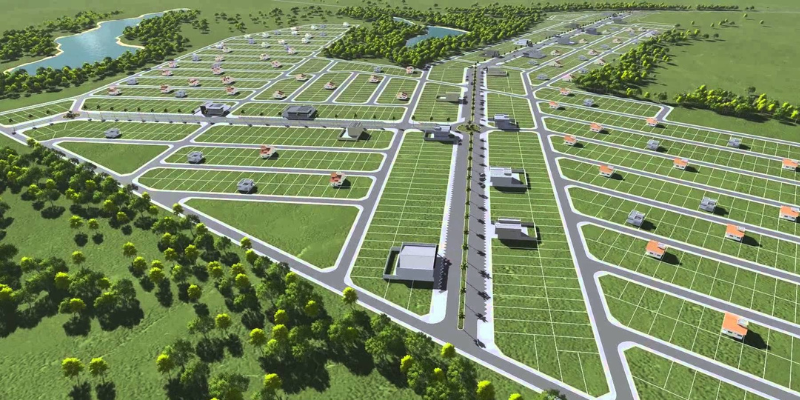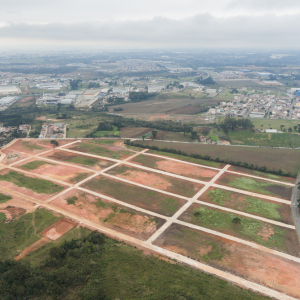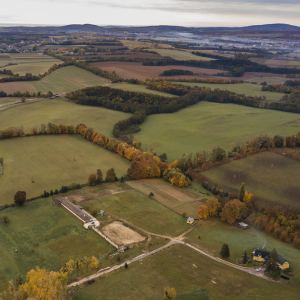
Subdividing land in North Carolina requires careful planning and compliance with local and state regulations. Fast Land Offers offers this guide to outline the essential steps, including zoning requirements and approval processes, to help ensure a smooth and compliant subdivision.
Understanding Land Subdivision Regulations in North Carolina
For real estate developers who wish to convert expansive land holdings into viable commercial or residential projects, it is imperative to navigate the land subdivision regulations of North Carolina. Subdivision regulations are controlled by both the state and local governments in North Carolina. Municipalities and counties are authorized to implement regulations that correspond with regional planning objectives.
The process typically entails the submission of comprehensive plats and plans that comply with zoning laws, environmental considerations, and infrastructure mandates. Lot size, road access, utility easements, and stormwater management are key components that must adhere to the standards established by local ordinances.
Developers are frequently required to participate in public proceedings or meetings, where community input can influence the approval or modification of the design. This comprehension of these regulatory frameworks is essential for the promotion of sustainable development within North Carolina’s diverse communities and the adherence to legal requirements.
Legal Requirements for Land Subdivision in North Carolina
When dividing land for real estate development in North Carolina, there are a lot of formal steps that must be carefully taken to make sure that state and local rules are followed. First, developers need to learn about the zoning laws in the area where they want to build. These laws say what can be done with the land and how dense it can be.
Getting preliminary plat approval from the local planning board or governing body is very important. This is usually done by submitting detailed plans and surveys that show how the land will be divided, taking into account things like roads, water supplies, and sewage systems. Environmental laws are also very important. Developers must follow the rules set by environmental agencies and do studies to see how their plans might affect wetlands or protected habitats.
Also, public notice laws say that nearby property owners and other important people must be notified before final licenses are given. Developers must get the necessary building permits and follow subdivision laws that say things like the size of lots, how streets should look, and how utilities should be able to get to them.
By knowing these legal requirements, developers can get through the complicated process of subdividing land in North Carolina with as few delays as possible and ensure the project’s success.
Reviewing zoning regulations and infrastructure requirements is essential when planning a land subdivision to ensure full compliance. If you need to sell quickly, Fast Land Offers is here to help make the process seamless. We buy land in North Carolina.
Common Challenges in the North Carolina Land Subdivision Process

Developing real estate property in North Carolina comes with a unique set of challenges, one of the principal issues being zoning and land use planning policies put into place by local municipalities and counties.
Strict regulations often set default boundaries on minimum lot sizes, density caps, and even what the land can be used for. Some other overlapping challenges that arise include environmental regulation compliance that aims to protect separate bodies of wetland water resources as well as habitats for endangered species, which lengthens the evaluation and permit processes that need to be completed.
Securing permits for infrastructure like roads, utilities, and a drainage system constitutes some additional requirements. The community as a whole is also known to push back during subdivision hearings where they feel change to neighborhood features or heavy traffic flow is not aligned with their preferences.
The combination of working under various legal frameworks alongside strict timeline schedules makes the entire situation even more difficult, as necessary permits from individual bodies increase the bureaucratic red tape added to the initial layers of the process.
Tips for Successfully Planning a Land Subdivision Project in North Carolina
When planning a land subdivision project in North Carolina, it is critical to properly comprehend the state’s zoning rules as well as local restrictions governing real estate development. Begin by completing a thorough site survey to assess your property’s topography, soil quality, and environmental constraints, all of which will have a significant impact on your subdivision design.
Work closely with expert surveyors and civil engineers who are knowledgeable about North Carolina’s land development processes to ensure precise boundary delineation and infrastructure planning. Obtaining all required licenses is critical, including stormwater management clearances, which are especially significant given North Carolina’s different climate zones.
Early engagement with local planning boards might help to smooth out negotiations and address any community impact or resource allocation concerns. Understanding the costs of utility installation, road building, and other infrastructural upgrades is essential for proper project budgeting.
By incorporating sustainable practices into your plan, such as maintaining natural habitats or establishing eco-friendly drainage systems, you can improve the appeal of your subdivision while also meeting state sustainability goals.
Understanding zoning laws and property restrictions is crucial if you want to sell your land for cash in North Carolina or other states. Fast Land Offers experience ensures a smooth and efficient sale.
What Are the Two Primary Requirements That Constitute a Subdivision in North Carolina?

Understanding the process of subdividing land for real estate development in North Carolina requires recognition of the two fundamental requirements that define a subdivision. To begin, divide a plot of land into two or more lots, building sites, or other divisions.
This division is available for immediate sale, lease, or development and must comply with local zoning ordinances. Second, clearance from the right governmental authorities is critical.
This entails delivering a detailed subdivision plat to the county or municipal planning authority for examination and approval. The design must show how the area will be divided and include information on dimensions, access roads, utility easements, and environmental concerns.
These regulations ensure that subdivisions are designed effectively and sustainably, while still meeting North Carolina’s legal and environmental standards. By meeting these criteria, developers will be able to successfully traverse the regulatory landscape and contribute to responsible growth in the state.
Who Can Subdivide My Land?
In North Carolina, there are various professionals who need to be involved for a subdivision project to be successful. The owner of the property is the main person who has rthe esponsibility and jurisdiction to start a subdivision process.
They usually have multiple professionals by their side to help them with the work. Licensed Land Surveyors with a legal qualification to practice in the relevant locales play an important part in mapping and parceling out land as per local zoning and development laws.
Also, real estate lawyers make sure all the appropriate legal matters are taken into account to state legal boundaries, such as laws from the state or local government ordinances related to land use and development. Civil engineers are sometimes contracted to deal with other subdivisions of new infrastructure works, like roads and utilities, or drains to be installed to enable the new works to be contained.
Other government subdivisions, such as planning offices or zoning commissions, have to consider subdivision proposals against more comprehensive plans for long-range community growth and development. For the reasons mentioned above, many developers go into business relationships with the above specialists.
From a North Carolinian perspective, determining which land can be subdivided entails coordinating with specialists on all legal, technical, and real estate development regulatory issues.
What Is the Encroachment Law in North Carolina?

For real estate developers engaged in land subdivision, knowing the laws regarding encroachment is important in North Carolina. Encroachment happens when structures or improvements like fences, driveways, or buildings extend onto another person’s land without legal permission.
To solve these disputes that can stall land subdivision and development, North Carolina encroachment laws focus on subdivisions. Before land subdivision, appropriate property surveys dealing with possible encroachments must be performed by real estate developers.
In North Carolina, dealing with encroachments means dealing with participants from adjoining properties to negotiate boundary lines or take legal action to determine boundary lines. Ensuring each of these steps is completed aids in compliance while also preventing expensive legal issues during the development process.
Understanding the structure of annexation laws is essential for effective real estate operations in North Carolina. For guidance and support, Contact Us at Fast Land Offers.
How Much Does It Cost to Have Land Subdivided?
Like other states, the cost of subdividing land in North Carolina for real estate development is influenced by several factors. For landowners and developers contemplating the subdivision deliberation process, understanding these costs is critical.
Some of the most straightforward expenses incurred are surveying costs, which stem from measuring and mapping out the respective polygons to proportionate zones. Additionally, legal fee costs regarding securing some requisite permits and navigating the land use law quagmire of North Carolina may be incurred.
The budget on subdividing land must account for expenditures related to infrastructure development, like the digging of roads, utilities, and even the drainage systems. To ensure that the subdivision will not have harmful effects on the region, assessing the subdivision’s potential impact on the local environment will also increase costs.
Further to this, planning boards may charge or incur their own fees, which differ from one municipality to another in North Carolina. Due to these new developments, certain jurisdictions are known to levy concessional infrastructure impact charges that are aimed at the residual community infrastructure resulting from the development purpose
Overall, while the cost of subdividing land in North Carolina can range from a few thousand dollars to tens of thousands, depending on these factors, thorough planning and consultation with professionals can help manage expenses effectively.
| ACRES | ZONING RESTRICTIONS | STATUTE | RIGHT-OF-WAY | RIGHTS-OF-WAY | TRACT |
| UNC | THE UNIVERSITY OF NORTH CAROLINA AT CHAPEL HILL | REGISTER OF DEEDS | DEFINITION | RESEARCH | |
| OWNERSHIP | HARNETT COUNTY | ATT’Y GEN. | ATTORNEY GENERAL |